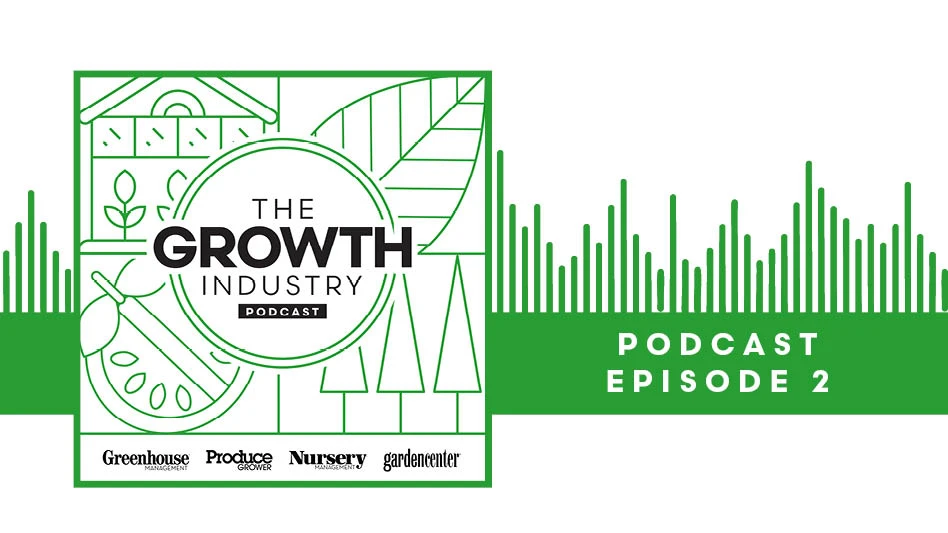We hear it every day. We need to be green. We need to be organic. We need to be sustainable, environmentally friendly, eco-conscious, etc. Many growers are taking steps to do their part, but how do you know if your pesticides are?
{sidebar id=66}
Study finds bogus claims
Do you rely on marking information or company reps? Well, as with any product, consumers should check out all of the claims for themselves. TerraChoice, an environmental marketing group, looked at a broad range of 1,018 consumer products making a combined 1,753 environmental claims. There was an assortment of items from paper to soaps to bags to pesticides.
Of all the items examined, all but one made misleading claims. These marketing claims were intended to mislead buyers into thinking the products were “greener” than they actually were. This study did not target any particular industry, but showed how marketers are creating a flood of products within most markets segments that may have vague, misleading or outright false claims to them.
Why is this happening? Because “green” is hot and many companies want to cash in on the trend. Also, sometimes companies may not fully understand the terms they use to describe their products. Although this is not an excuse, there is a lot of confusion about specific definitions of many terms.
Effects on you
How does this affect you as a grower? Let’s say you find a new pesticide that claims it is “soft on beneficials.” You think, “Great! We want to encourage natural predators in our nursery.”
But what you should be thinking is, “Which beneficials are they referring to?” It is easy to test a pesticide against one biological control agent and then assume it will be safe with others. We know that is not always true. Just as plants react differently to different pesticides, the same variances hold true with beneficials. When you look at the generic grouping terms “beneficials” or” biological control agents,” you are considering a broad range of creatures. You may be talking about wasps, ladybugs, mites, fungi or even nematodes, which are all very different. So how could one product impact them (or not) all equally?
Companies take a closer look
Fortunately, many pesticide companies are realizing the importance of these good guys and are taking a closer look at how their products impact beneficials. Companies that produce biological control agents also realize the importance of this information.
Companies like Biobest and Koppert have developed user-friendly Web pages to help you navigate the maze of pesticides and interactions with their beneficials. When visiting either of these sites, head to the side effects page. There you can input the biological control agent you are using or ones present in your growing area and the active ingredient of a specific pesticide. It will tell you how it impacts the different life stages of the good guys. But sometimes you will find that the results will have blanks. This is because the effects may not be known. Check back. The companies are working hard to fill in those tables. Another option is to contact the insectaries directly. Anyone selling biological control agents should be able to provide you with this information.
Don’t think that just because a product is more environmentally friendly or is considered a “softer” product that it will not kill beneficial insects or mites. Although many softer products kill the beneficials on contact, they allow beneficials to move back into your crops sooner than some synthetic pesticides. The sooner the beneficials move back in, the sooner they start feeding on your pests. Most of these products have less of an ecological impact if they do not hit their target (and according to research from
Third-party certification
One way to take the guesswork out of figuring out if a product is more environmentally sensitive is to look for third-party certification. If a product doesn’t have this, you may want to ask a few questions. If a company claims the product is “natural,” what is the company’s definition of natural?
Third-party certification is an independent review of a product or process by an unaffiliated organization or company. These companies only offer their seal of approval to growers and products that meet strict requirements.
Be sure the third party is a legitimate organization, like OMRI,
Green pest management does not look like it is going to be a trend. It’s going to be the standard for the future. Learn to recognize what products are truly green and not just assume they are. This will lead you to a greener future.
{sidebar id=2}
For more: TerraChoice, www.terrachoice.com. Biobest N.V., www.biobest.ca. Koppert Biological Systems, www.koppert.com.
- Suzanne Wainwright-Evans
April 2008
Latest from Greenhouse Management
- Trends: Proven Winners 2025 perennial survey shows strong demand
- Online registration opens for the 2025 Farwest Show
- Sustainabloom launches Wholesale Nickel Program to support floriculture sustainability
- Be the source
- pH Helpers
- Society of American Florists accepting entries for 2025 Marketer of the Year Contest
- American Horticultural Society welcomes five new board members
- Color Orchids acquires Floricultura Pacific, becoming largest orchid supplier in U.S.






